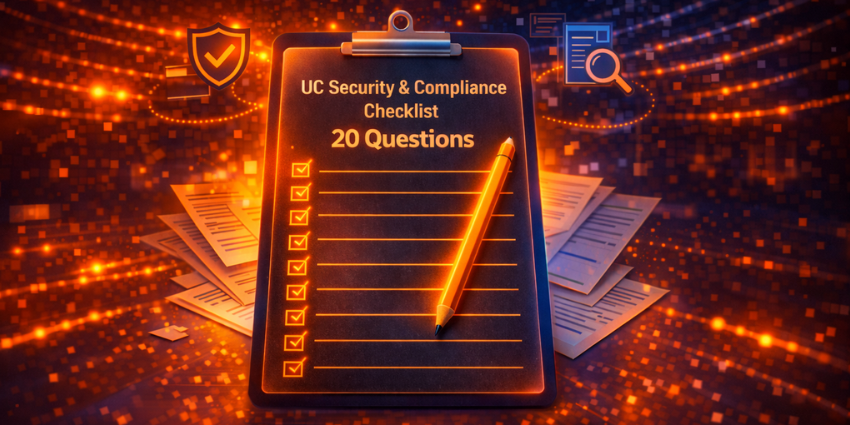Google has unveiled a new, tailored Gemini encouraging further entrenching of governments into its Workspace through the launch of Gemini for Government.
A comprehensive AI platform specifically designed for U.S. government agencies, the announcement—made in partnership with the General Services Administration (GSA)—represents a strategic expansion of Google’s foothold in federal IT procurement.
The timing of this announcement aligns with President Trump’s AI Action Plan and the GSA’s OneGov Strategy, positioning Google as a key enabler of federal digital transformation initiatives.
“GSA appreciates Google’s partnership, and we’re excited to add the comprehensive ‘Gemini for Government’ AI solution to OneGov,”
Federal Acquisition Service Commissioner Josh Gruenbaum, said.
This development represents more than just another product launch; it signals Google’s continued effort to solidify its unified communications position with the US Government, leveraging tailored AI capabilities as a differentiator in an increasingly competitive federal marketplace.
AI Platform Addressing Federal Needs
The Gemini for Government offering stands out in the federal marketplace for several reasons.
Firstly, Google positions Gemini for Government as a complete AI platform specifically tailored for government use. Rather than offering only a limited set of compliance features, Google has integrated standards such as FedRAMP directly into its solutions, so the entire platform can be used safely.
As a result, the comprehensive package includes enterprise search capabilities, video and image generation tools, the popular NotebookLM AI assistant, and pre-built AI agents for research and idea generation—all available for government agency use.
The architecture also incorporates an AI Agent Gallery that enables agencies to deploy, customize, and scale AI solutions across their organizations.
Perhaps most significantly, the offering includes agent-to-agent communication protocols and enterprise data connectors that integrate with existing government systems. This interoperability addresses a longstanding challenge in federal IT procurement, where agencies struggle to implement new technologies that work seamlessly with legacy infrastructure.
The platform’s open architecture ensures that agencies can select from Google-built agents, third-party solutions, or develop their own as needed.
Navigating Complex Security and Compliance
The federal marketplace presents unique challenges that have historically limited the success of commercial technology providers. Government contracts require strict adherence to security protocols, extensive compliance documentation, and lengthy procurement processes that often deter vendors.
Google’s approach to these challenges demonstrates a sophisticated understanding of federal procurement realities.
The Gemini for Government platform includes FedRAMP High authorization, the most stringent level of federal cloud security certification. Achieving this required extensive testing and documentation, representing a significant investment in meeting government standards.
The platform’s security framework addresses multiple layers of federal requirements, including Identity and Access Management, threat protection, data privacy controls, and SOC 2 Type 2 compliance.
These features are integrated into the core platform—not add-ons—reducing the complexity and cost typically associated with meeting federal security requirements. The inclusion of these advanced, regulation-specific compliance features underscores Google’s commitment to addressing the unique needs of government customers.
Expanding Google’s Strategic Government Footprint
This AI platform launch represents the latest phase in Google’s systematic push to build share in the government sector, a space where Microsoft has been dominant.
The new offering builds upon Google’s earlier success in securing government Workspace contracts through competitive pricing. Earlier this year, the company introduced substantial discounts on Google Workspace for government agencies.
The Gemini for Government platform extends that value proposition into the rapidly evolving AI space, where agencies face pressure to modernize while upholding strict security standards.
Google has continued its aggressive pricing strategy with Gemini, reportedly charging less than $0.50 per agency seat per year. Although priced very low, this strategy allows Google to get its foot in the door and later sell additional add-ons.
While stressing the security of Gemini for Government, Google has also offered agencies the option of deploying additional security solutions at discounted government pricing.
This positions Google’s Workspace suite as a core government platform during a period of efficiency drives, such as those tied to DOGE, ultimately allowing it to entrench its products deeper within agencies’ tech stacks.
The comprehensive nature of the AI offering, combined with its low cost per user, creates a compelling total cost of ownership for agencies.
Gaining Ground with Governments
While Google Workspace has struggled against Microsoft Office 365 in the commercial enterprise space, the federal sector presents a different competitive environment where Google’s focus and pricing may prove more effective.
Government agencies often evaluate technology differently than commercial enterprises, weighing cost-effectiveness, compliance, and alignment with modernization needs more heavily.
As agencies face increasing pressure to adopt AI for operational efficiency and mission readiness, Google’s comprehensive platform offers capabilities that extend beyond traditional productivity tools.
The ability to deploy custom AI agents securely, leverage advanced research tools like NotebookLM, and integrate with existing data sources makes Gemini more than a productivity suite; it becomes a transformation enabler.
Establishing a strong government presence carries strategic value well beyond short-term revenue. Success in the federal market could give Google the credibility and customer references needed to challenge Microsoft in other high-security enterprise segments.







